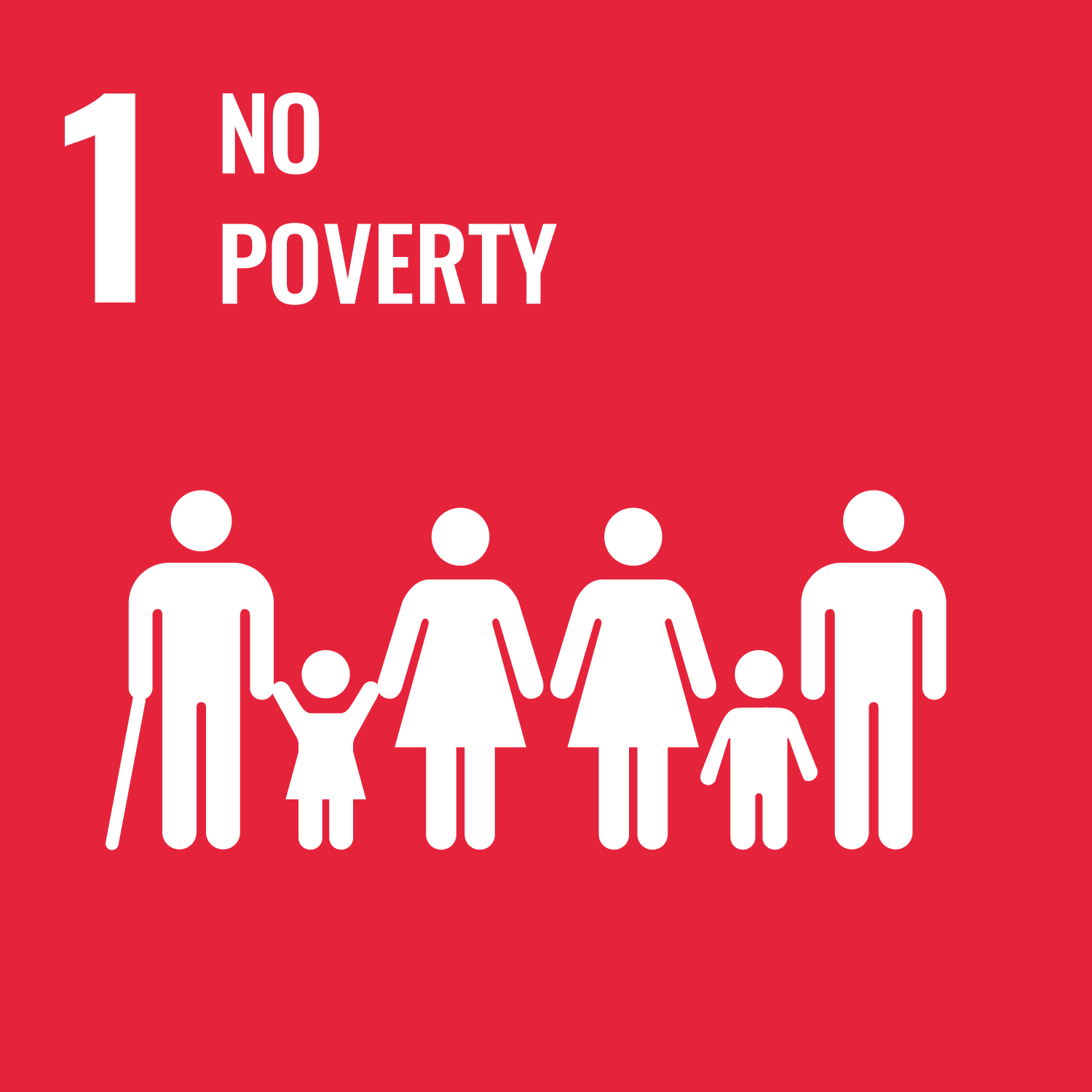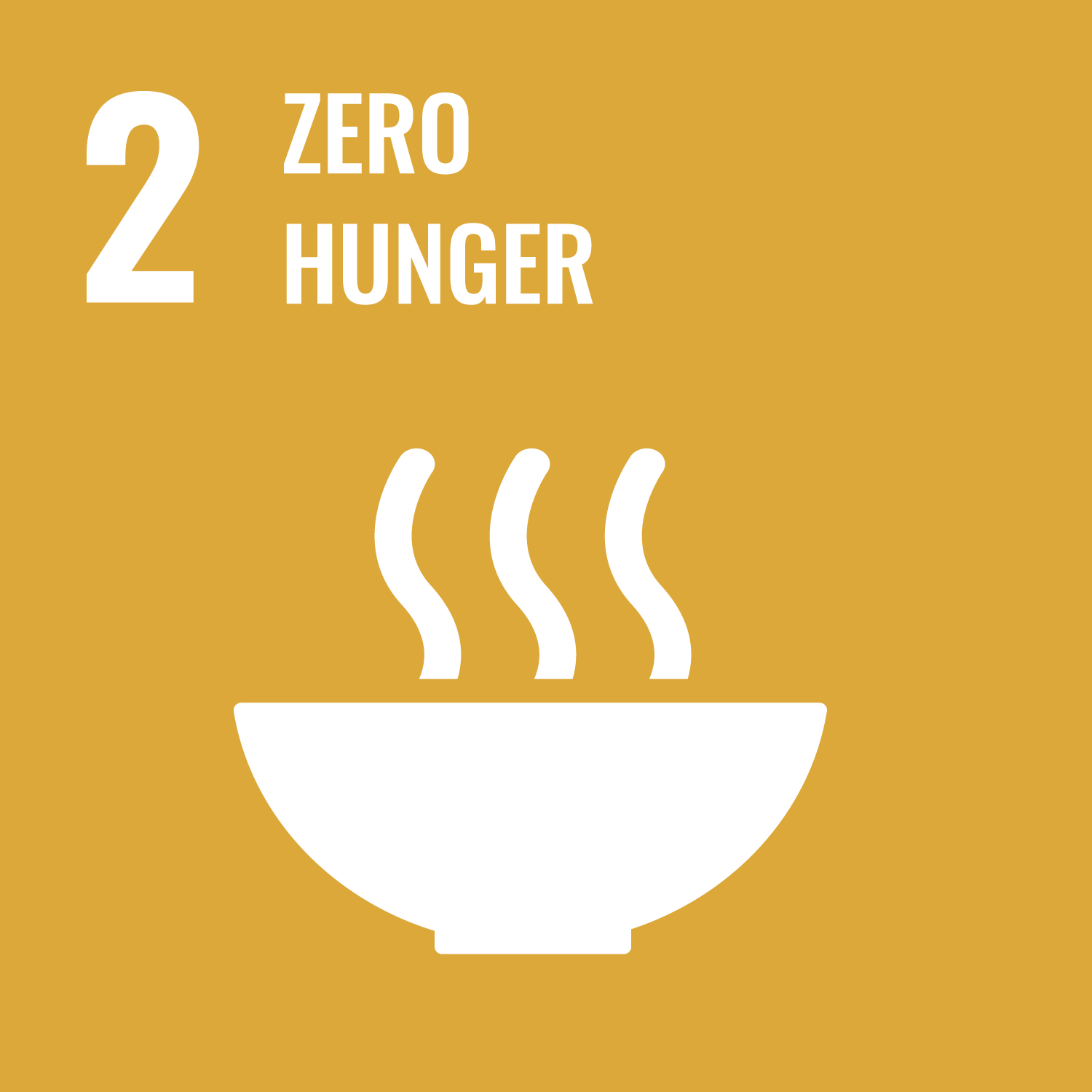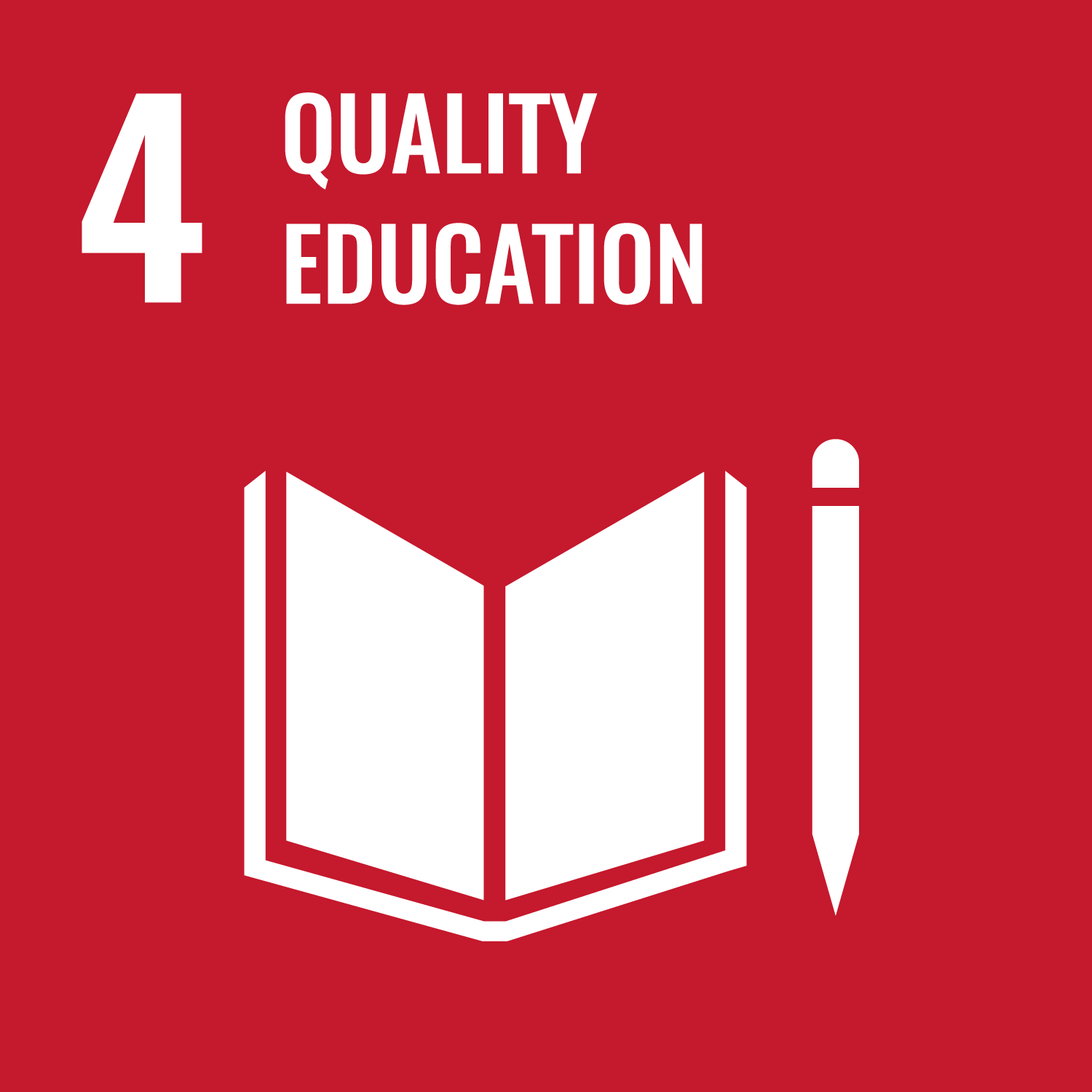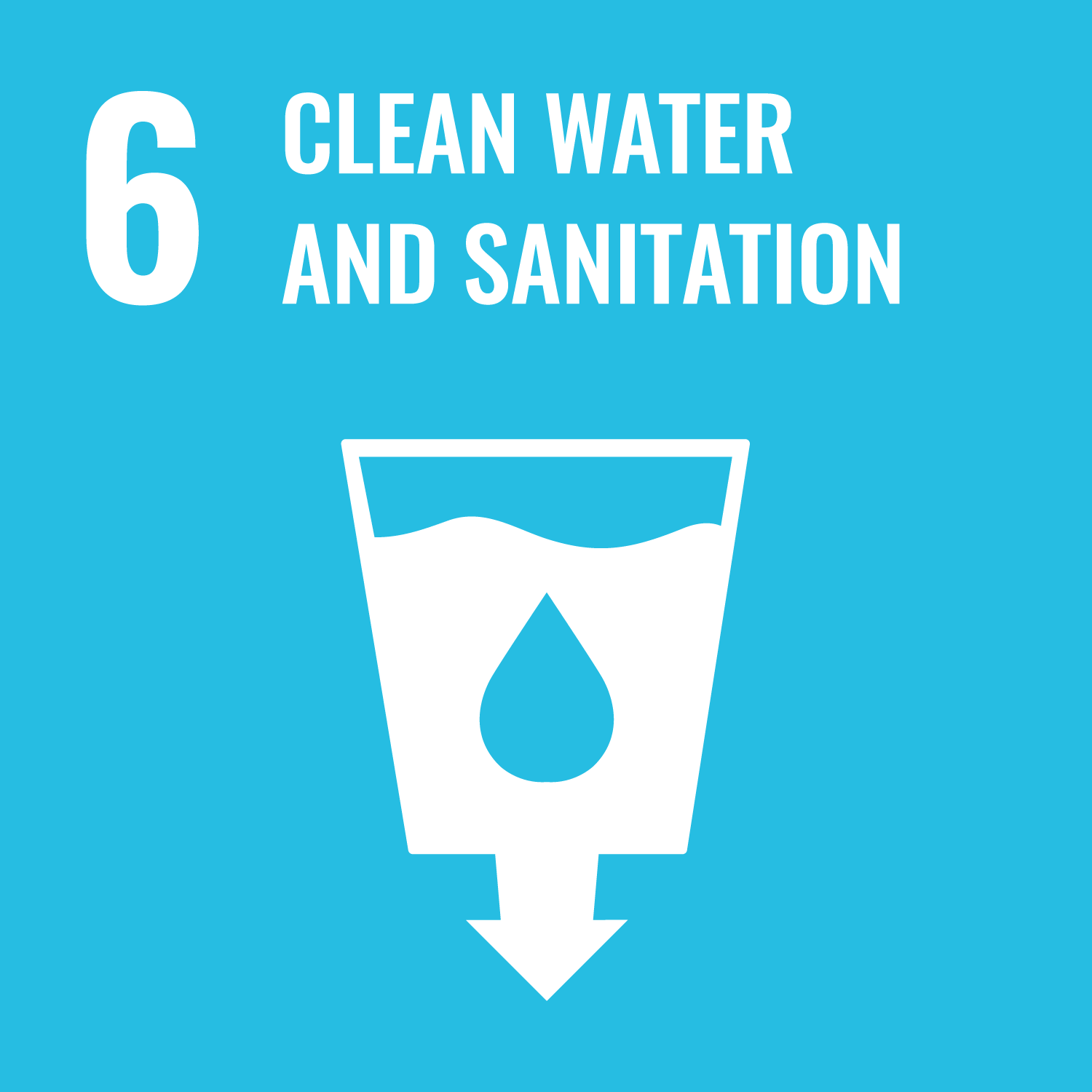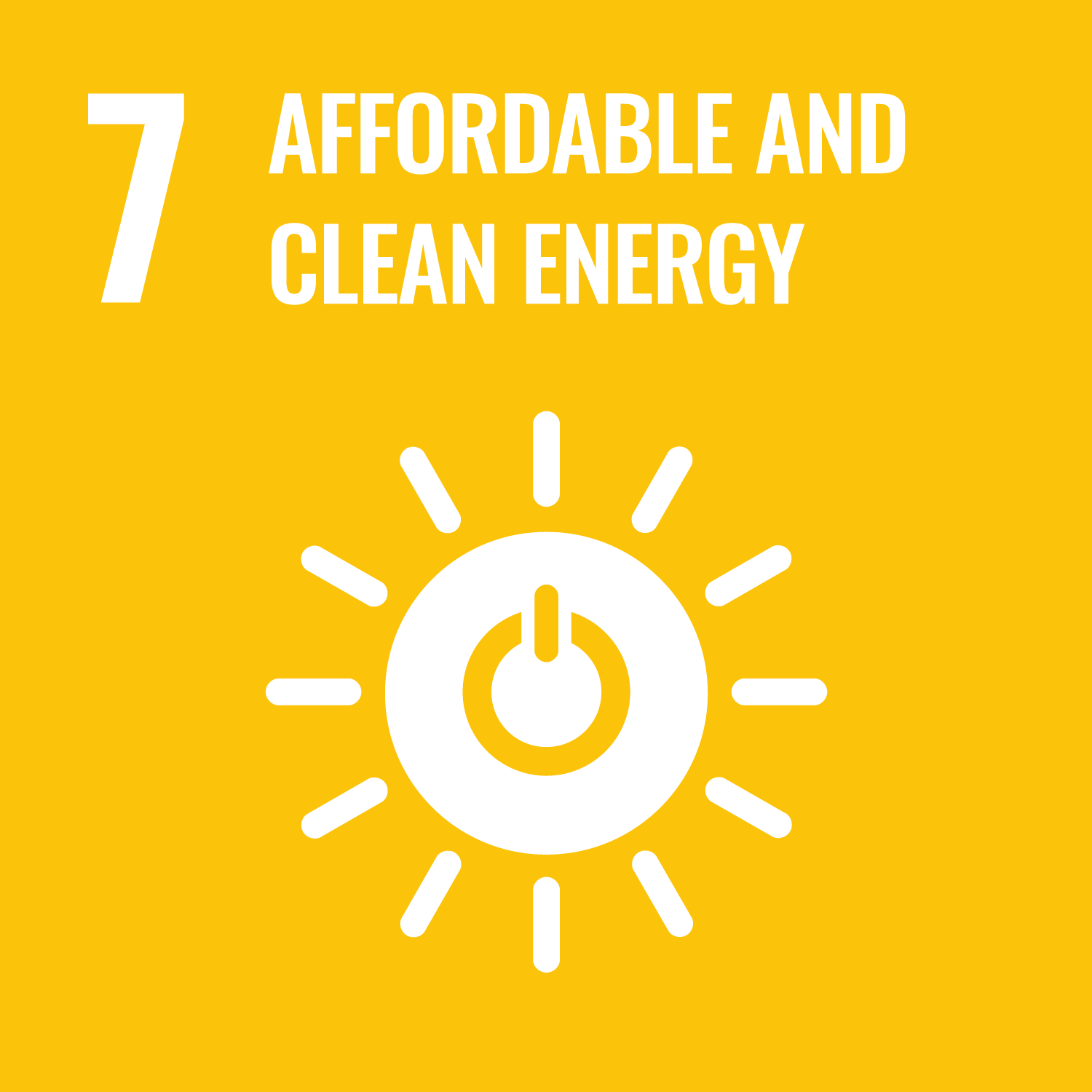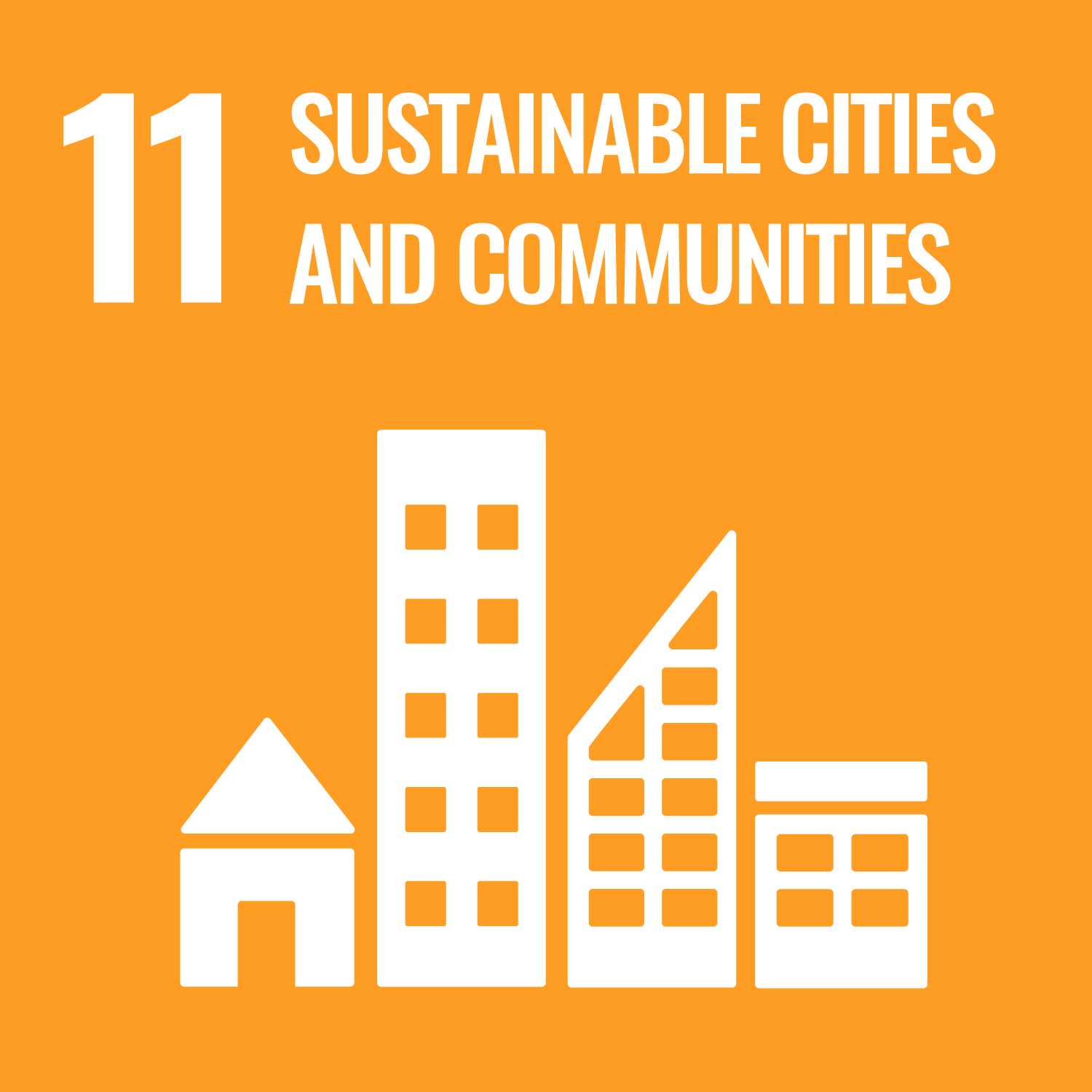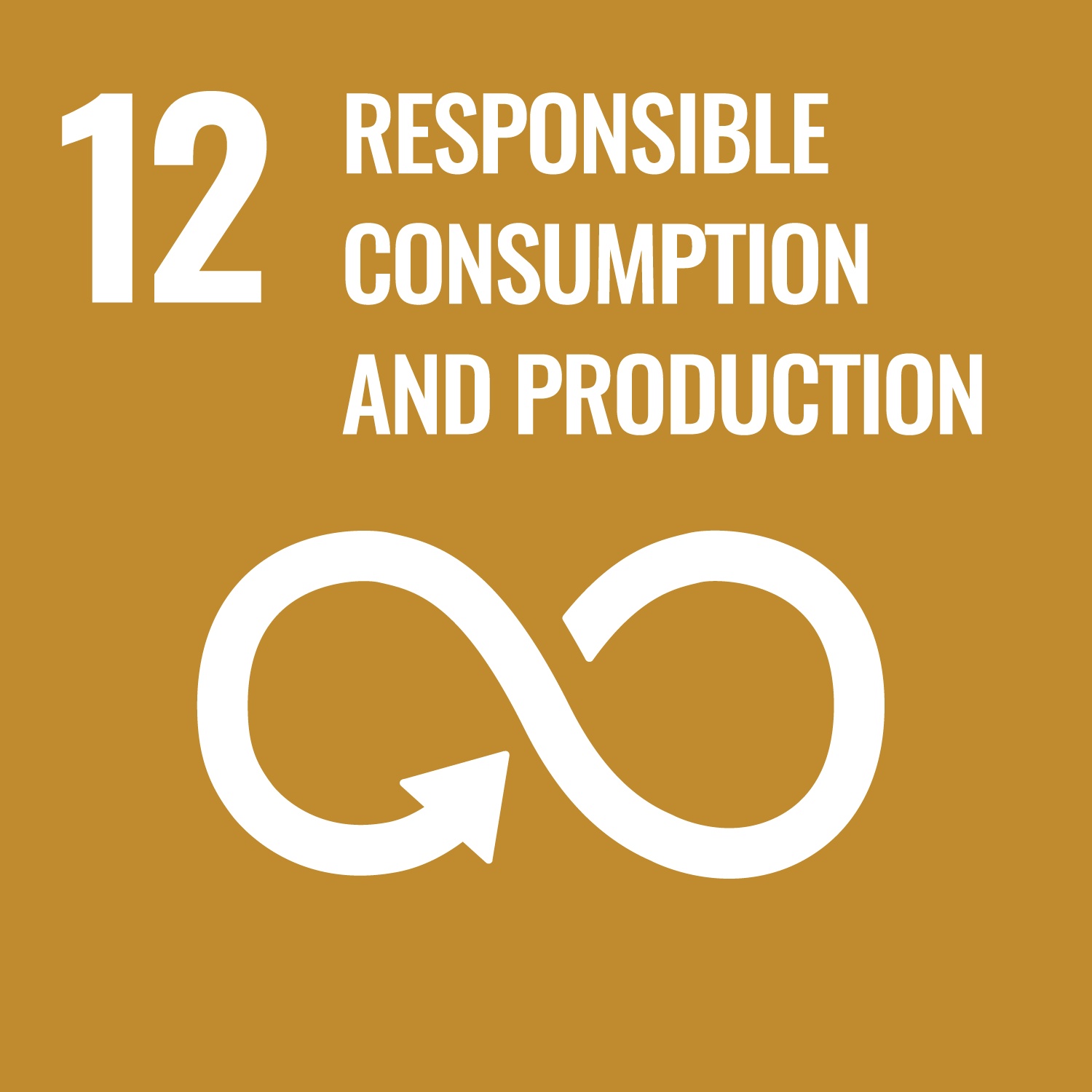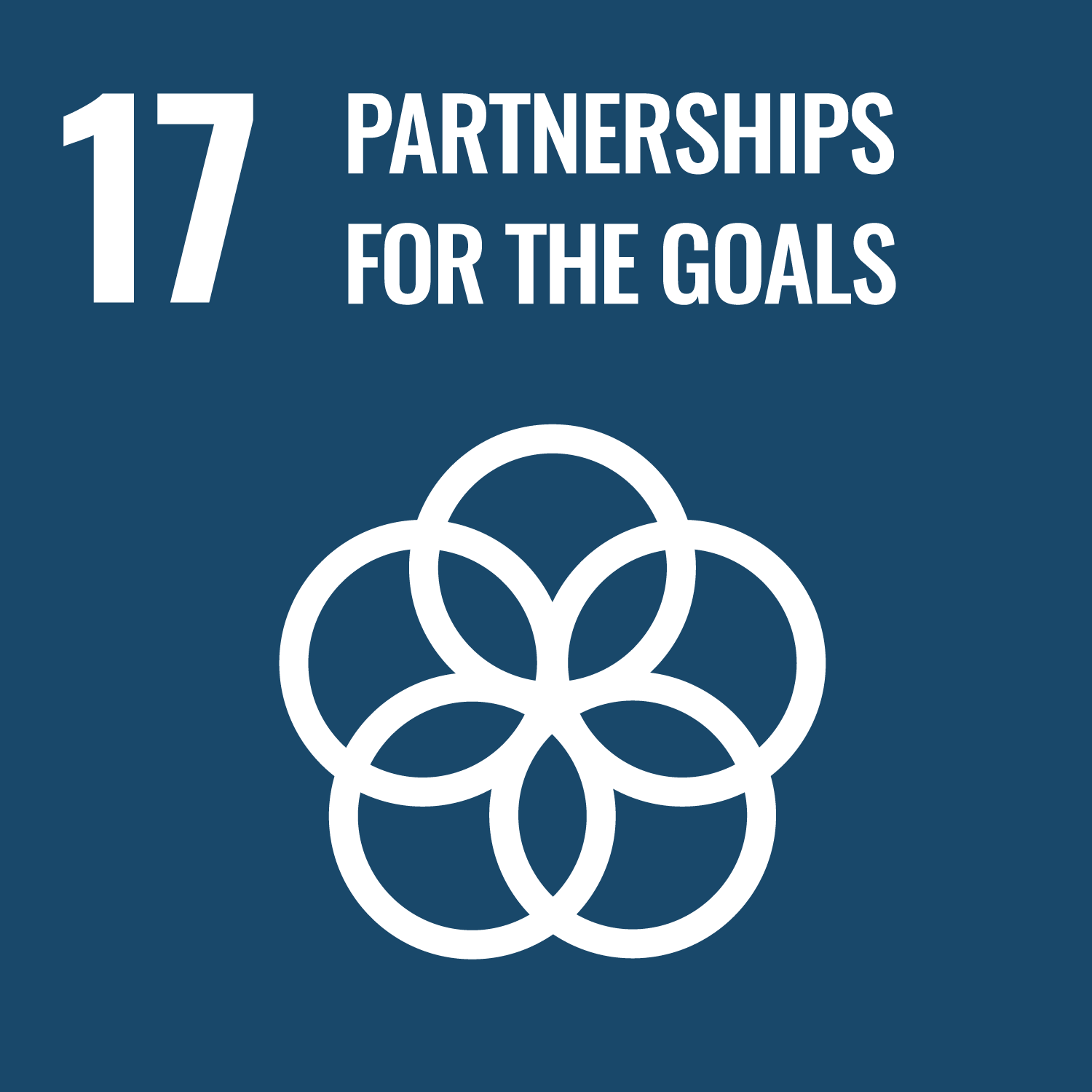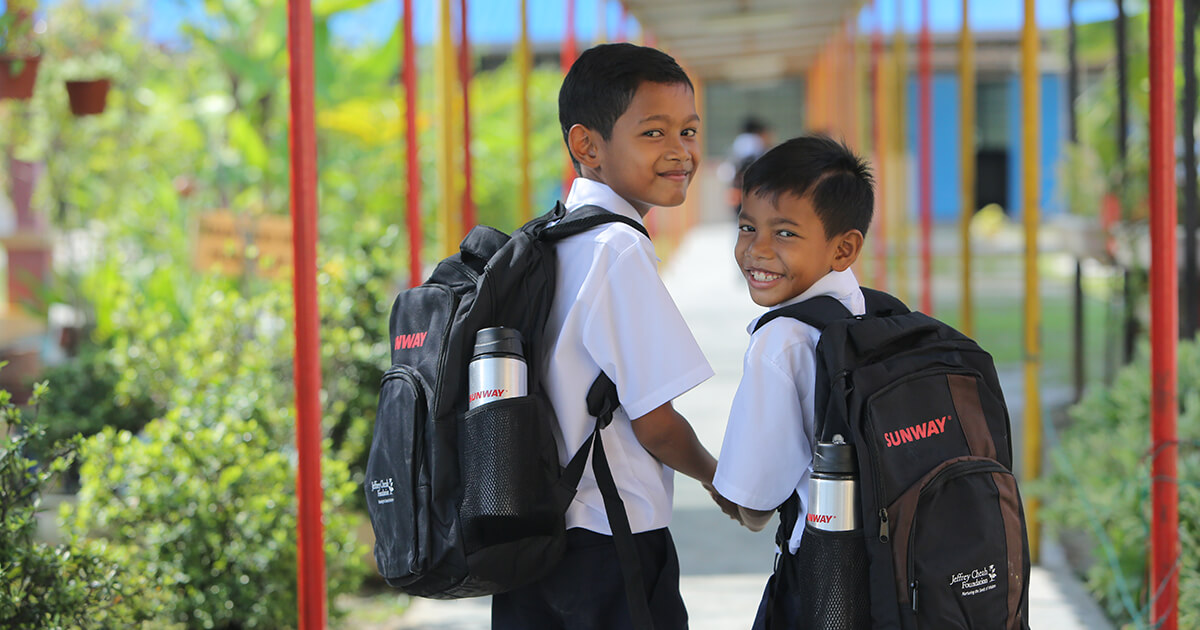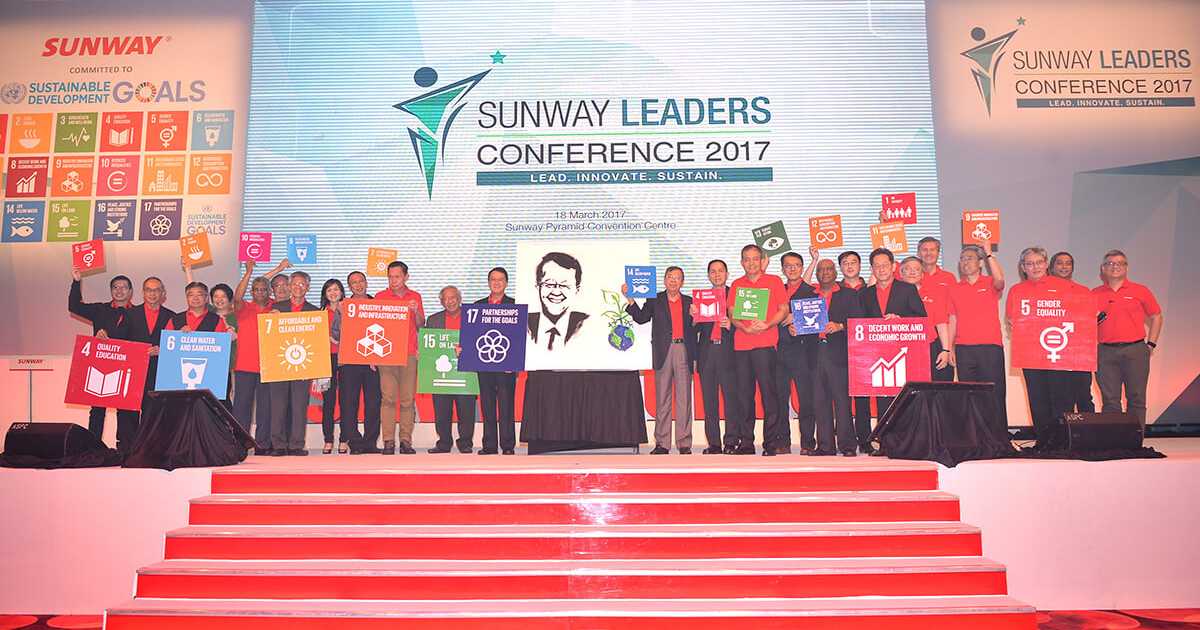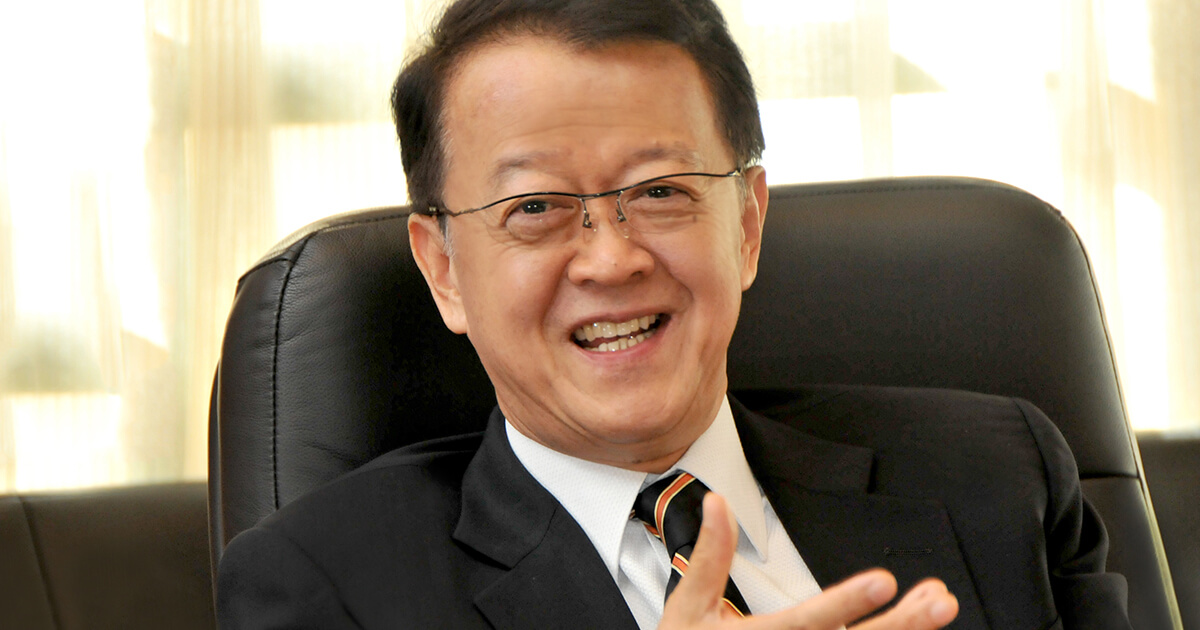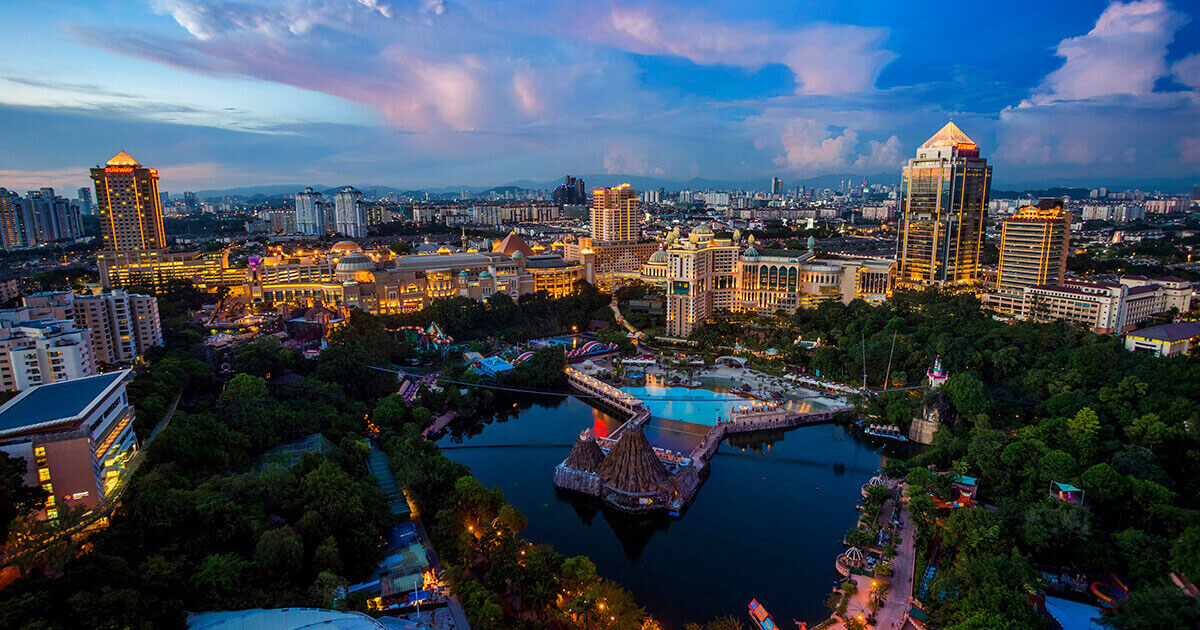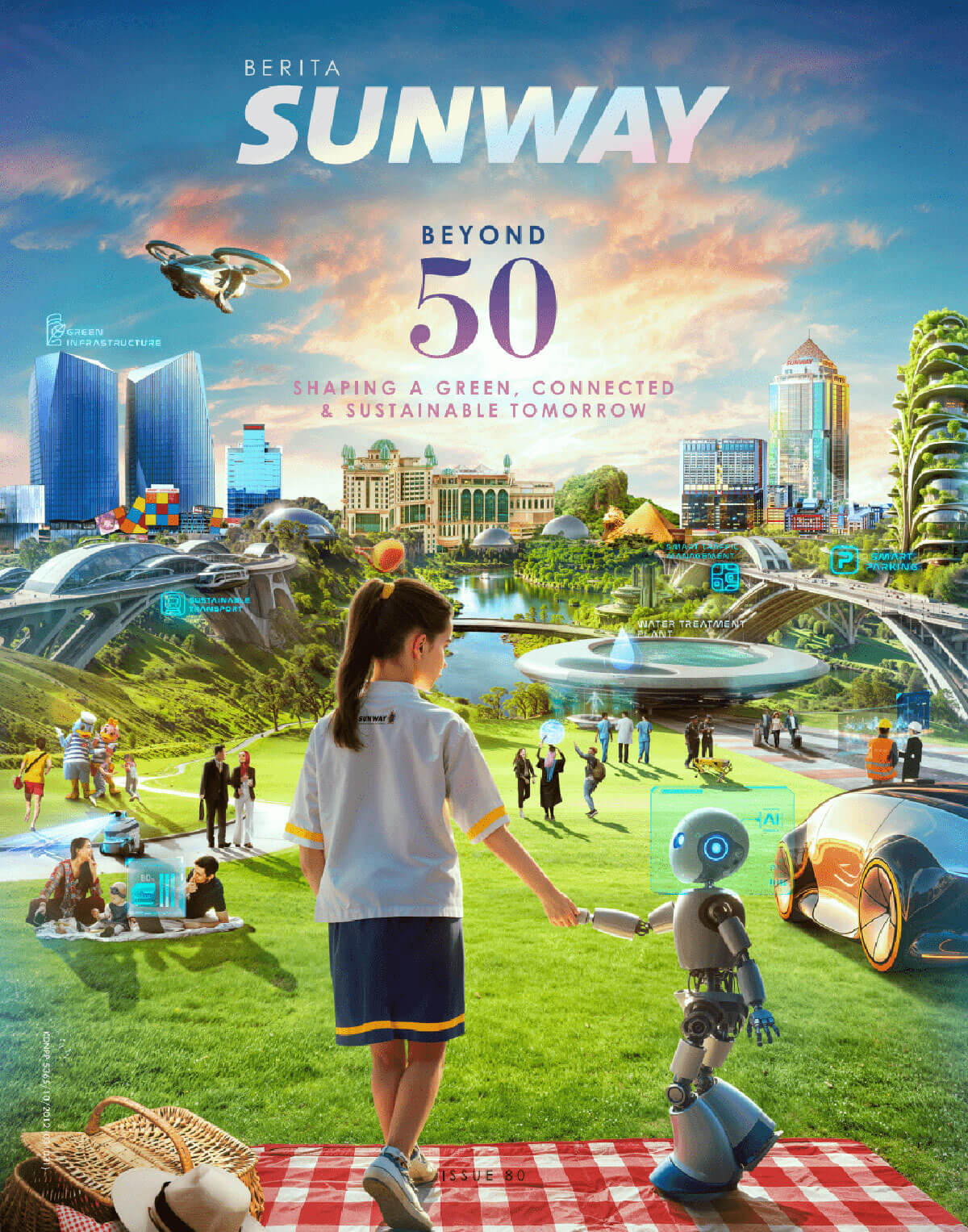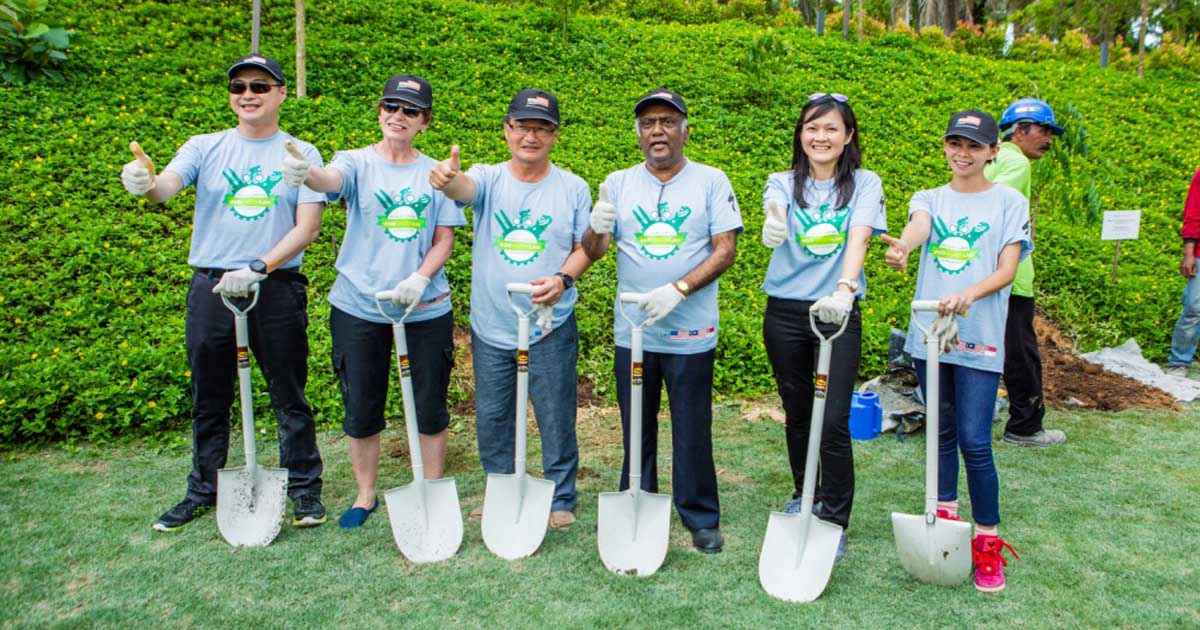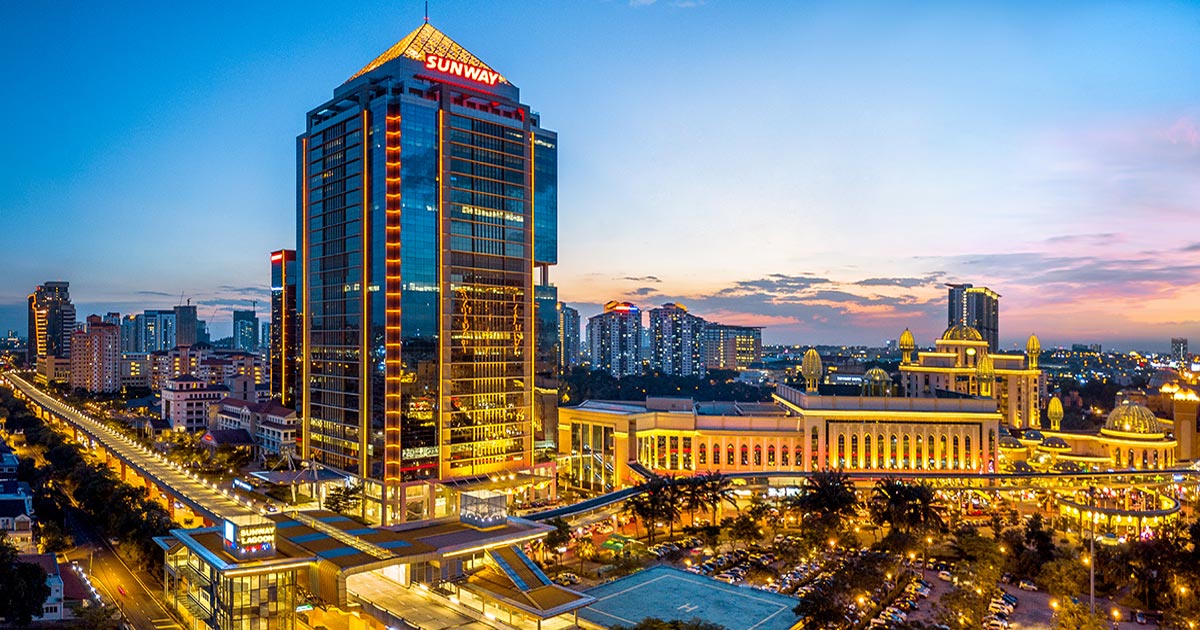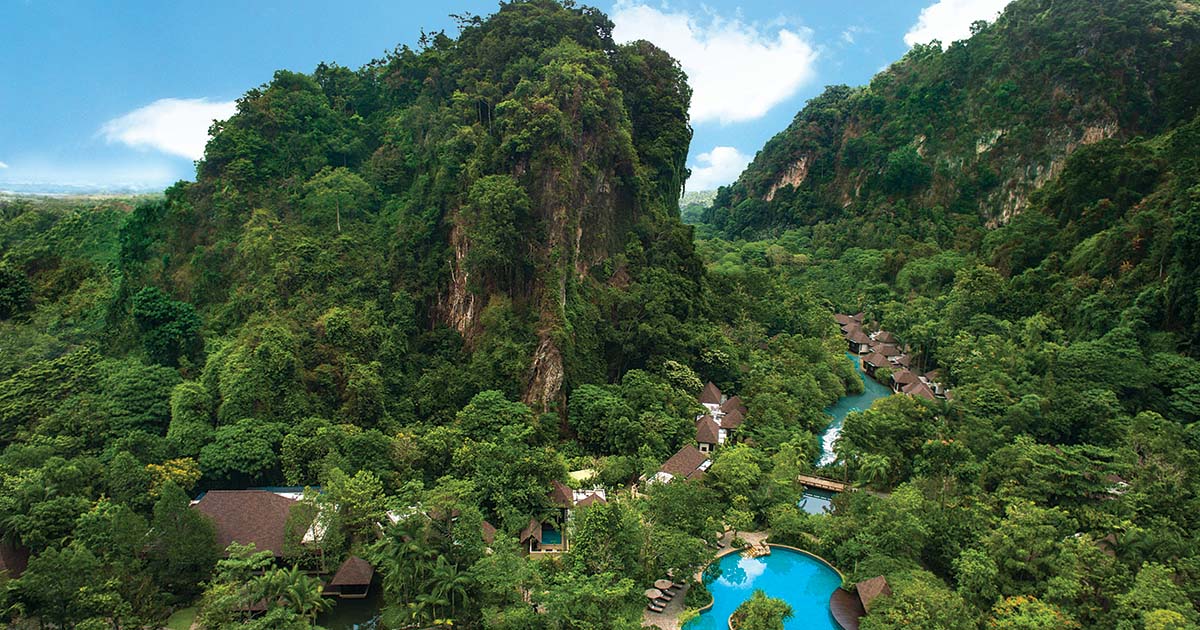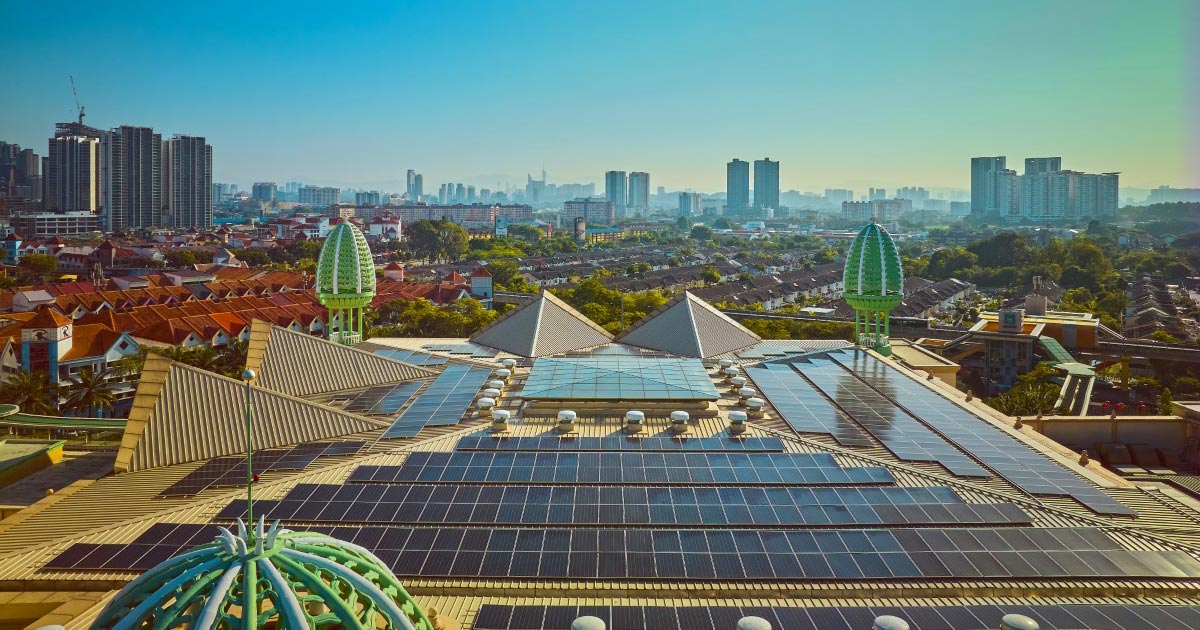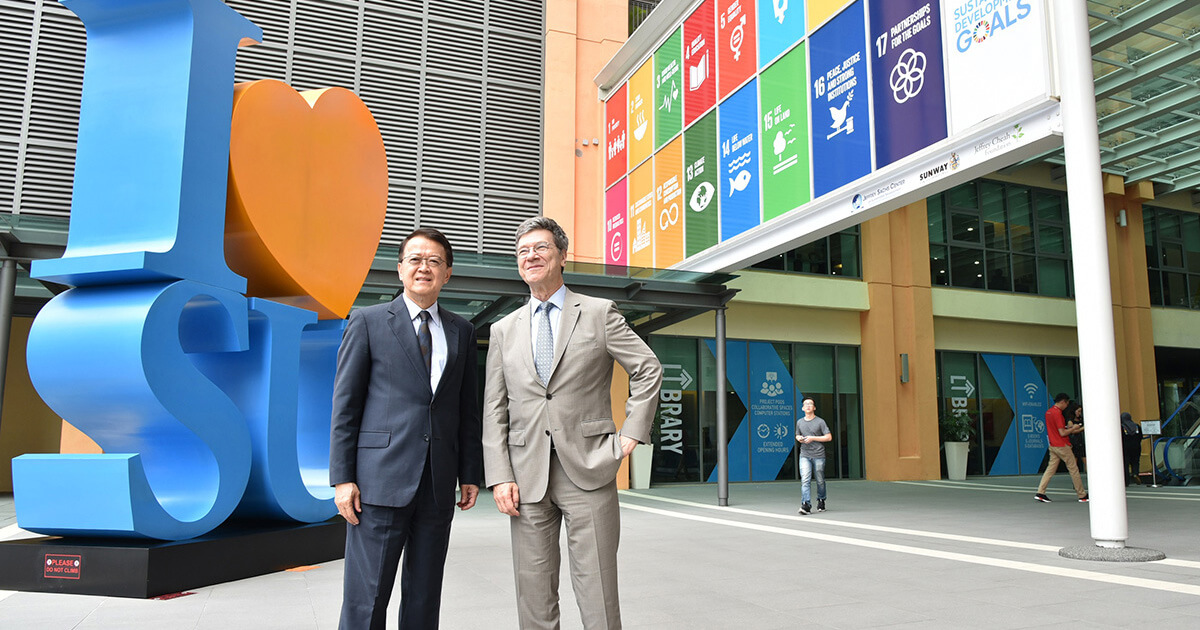Walking the talk on sustainability
Since aligning itself with the 17 United Nations Sustainable Development Goals (UNSDGs), Sunway has been a strong advocate of the cause, implementing supportive steps across all its projects in Malaysia.
Sunway Group founder and chairman Tan Sri Dr Jeffrey Cheah recognises the hardship that comes with the lack of quality education and hazards that present themselves when the environment is not cared for.
He shared his views at a UBS conference in Singapore in May, saying, “My views on sustainability were shaped by my formative years growing up in Pusing – a small town in Perak. I witnessed at first hand the impact of poverty on families and how it closed off avenues for advancement, particularly in education, for them.
“Pusing was largely a tin mining town. You could not fail to notice the ugly scars on the landscape left by disused mining pools. Poverty and environmental degeneration are not abstract concepts to me, but part of my personal experience. They helped form my conviction that education provided the optimum route out of poverty and we need to help heal a bleeding Mother Earth.”
“In short, without recognising it, the concept of sustainable development was inculcated in me. When the time came, these formative childhood memories guided me in my entrepreneurial career and philanthropic endeavours.”
He is determined to better the quality of life in Malaysia by realising UNSDGs under the Sunway name.
As a matter of fact, all of Sunway’s public-listed companies are listed on the FTSE4Good Bursa Malaysia Index for demonstrating good environmental, social and governance practices.
Raising the new generation
Based on Dr Cheah’s firm convictions, it is only natural for much of Sunway’s operational focus to be deeply rooted in Goal 4 of the UNSDGs – quality education – through the Jeffrey Cheah Foundation (JCF).
Sunway is committed to ensuring inclusive, equitable and quality education, as well as promoting lifelong learning opportunities for all, particularly among those in need.
Since 2005, Sunway has disbursed more than RM400mil in the form of scholarships and grants through the JCF, which is owned and governed by a distinguished board of trustees, with Sultan Sharafuddin Idris Shah of Selangor as its royal patron.
“I have always believed that education should never be a for-profit business. As soon as I was able to, we established the JCF, to which I gifted all my equity in perpetuity to Sunway’s educational institutions. The gift was valued at RM720mil then, and the value has since grown to more than RM1bil.”
“Thousands of deserving students have benefited from this initiative. It is my personal goal to award more than RM1bil in my lifetime,” says Dr Cheah.
Giving the youth a boost
Sunway recognises the importance of receiving quality education from a young age. Last month, it launched its Back-to-School programme, aimed at helping more than 3,700 underserved students across the nation.
These beneficiaries are students who are from B40 families, at risk, stateless or from orphanages. The students come from 11 schools in Johor, seven schools in Penang, three schools in Selangor and 38 schools in Perak.
Sunway has since provided school supplies for 600 students of SK Puchong Perdana and 157 students of Sekolah Bimbingan Jalinan Kasih.
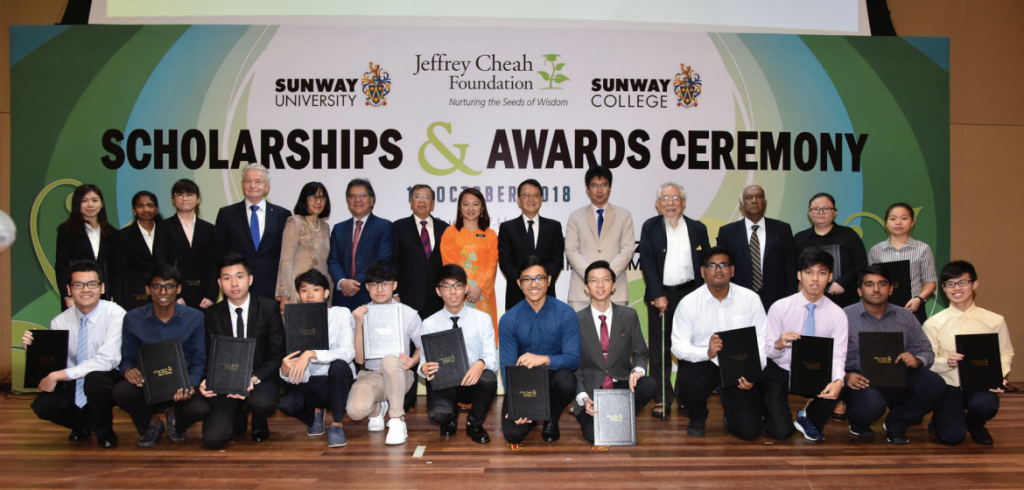
Women, Family and Community Development deputy minister Hannah Yeoh (eighth from left) and Tan Sri Dr Jeffrey Cheah (ninth from left) with the Jeffrey Cheah Foundation (JCF) board of trustees and students who received scholarship awards at the JCF Scholarships and Awards ceremony 2018.
Management with a global mind
Besides monetary aid, Sunway carries out other efforts to provide quality education to people from all academic backgrounds.
JCF owns and governs all 16 of Sunway’s educational institutions and entities such as Sunway University, Jeffrey Cheah School of Medicine and Health Sciences at Monash University Malaysia, Sunway College and Sunway International School. It is currently Malaysia’s largest education-focused social enterprise.
To further fulfil its aim of making quality education available to Malaysian students, Sunway Education Group has partnered with Harvard University, University of California, Berkeley (UC Berkeley), University of Cambridge and University of Oxford, and soon, Massachusetts Institute of Technology.
The Jeffrey Sachs Center on Sustainable Development (JSC) at Sunway University advances Sunway’s goals to realise UNSDGs by promoting green development and social progress through research and education.
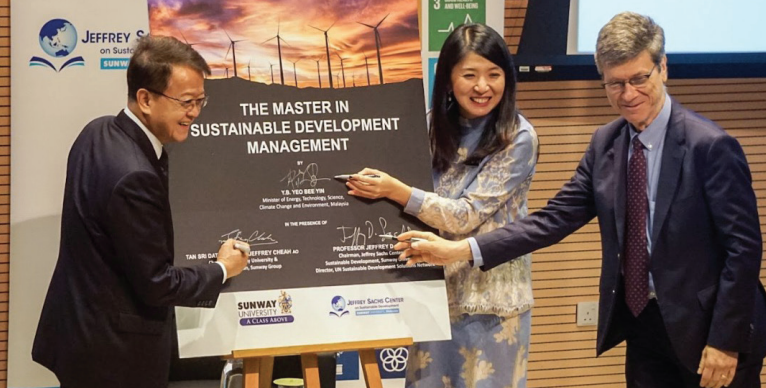
(From left) Tan Sri Dr Jeffrey Cheah, Energy, Science, Technology, Climate Change and Environment Minister Yeo Bee Yin, and Prof Jeffrey Sachs launching the Master in Sustainable Development Management programme.
Feeding those in need
Besides education, Sunway is working towards realising other United Nations Sustainable Development Goals (UNSDGs). Its commitment to the second UNSDG, Zero Hunger, is defined through its determination to end hunger, achieve food security and improved nutrition and promote sustainable agriculture.
In June last year, Sunway launched the #zerofoodwastage initiative in collaboration with Kechara Soup Kitchen at its buka puasa buffet at Sunway Resort Hotel.
The brainchild of Tengku Zatashah Sharafuddin Idris Shah, this initiative acts to fight against food wastage by redistributing food to the needy.
According to the National Health and Morbidity Survey 2015, 12.5% of children are still underweight even as Malaysia fights against obesity, which affects 44% of the general population.
In a press conference for the initiative, Sunway Group deputy executive chairman Tan Sri Razman M. Hashim talked about the importance of educating the public about food wastage and feeding the urban poor.
“Many Malaysians are fortunate to have an abundance of food and may not give much thought to the 270,000 tonnes of food wasted every Ramadan. By educating the public about food wastage, doing good deeds and feeding the homeless and urban poor, Sunwayians are doing our bit to make small changes for a better and more sustainable future,” he said.
Sunway continued its partnership with Kechara Soup Kitchen beyond Ramadan and has extended its efforts to its sister hotels – Sunway Putra Hotel, The Banjaran Hotsprings Retreat, Sunway Hotel Georgetown and Sunway Hotel Seberang Jaya.
Another initiative by Sunway to feed the needy is its Rise Against Hunger campaign. For the past five years, Sunway’s employees have packed more than one million nutrition-dense, dehydrated meals for underserved communities in Malaysia, Timor Leste and Cambodia. The initiative has since fed thousands of families in these countries.
In August, 1,750 Sunway employees from Ipoh, Penang, the Klang Valley and Johor Baru volunteered to prepare 500,000 meals for impoverished families
in these three countries.
The meal-packing, which took place in five locations – Sunway University and Sunway Medical Centre in the Klang Valley, Sunway International School in Johor, Sunway Lost World Hotel in Ipoh, and Sunway Hotel Seberang Jaya in Penang – was completed in 14,000 volunteer hours.
To make this event a success, Sunway enlisted the help of six non-governmental organisations to distribute the packed food. These organisations were the Rotary Centennial Club (Johor), Sahabat Orang Asli, Rotary Club KK South (Sabah), Rotary Club Kuching (Sarawak), Salesians Missions (Timor Leste), and One2One (Cambodia).
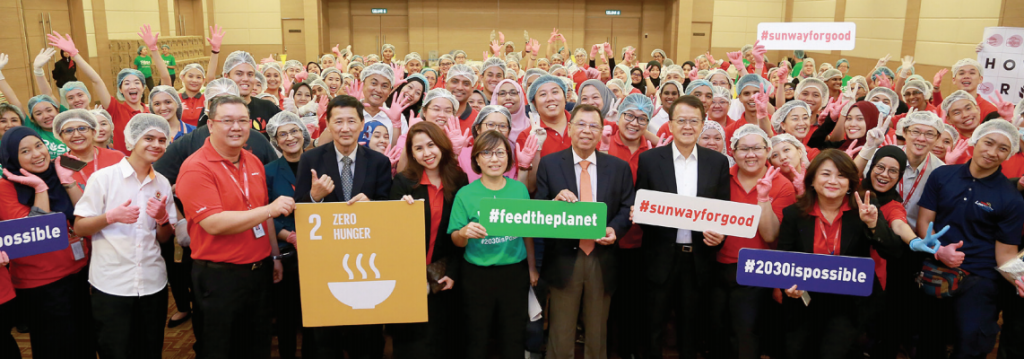
Tan Sri Dr Jeffrey Cheah (fifth from right) and Tan Sri Razman M. Hashim (sixth from right) with volunteers for Sunway’s Rise Against Hunger campaign.
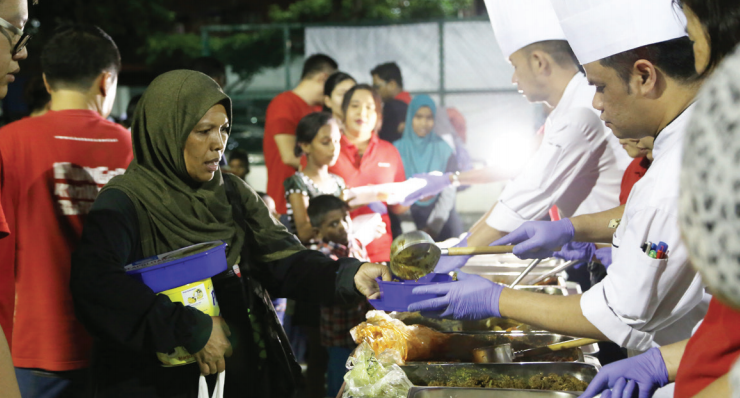
Sunway’s #zerofoodwaste campaign provides unserved hotel food to impoverished families.
Sunway Education Group also launched the Master in Sustainable Development Management under JSC in October. This programme aims to equip people from multidisciplinary backgrounds to become adept at management and problem-solving using analytics and systems thinking guided by global concerns.
Prof Woo Wing Thye, director of the JSC and president of Jeffrey Cheah Institute on Southeast Asia, elaborates, “The programme aims to empower individuals and organisations to develop innovative solutions towards achieving the Sustainable Development Goals in actionable ways in their specific sectors or areas of work.”
The first batch intake is full for this programme. Classes will commence in January next year.
Joining hands in innovation
Aside from building a community of sustainability, Sunway is keen on creating entrepreneurs who will carry on its vision that is aligned with UNSGDs. It teamed up with KK Fund to set up a venture capital fund (Sun SEA Capital) with plans to spend up to US$50mil (RM208mil) on digital start-ups in Malaysia, Thailand, Singapore, Indonesia, the Philippines, Vietnam and Hong Kong.
Sunway also launched Sunway Innovation Labs (iLabs) and Sunway iLabs Makerspace to promote entrepreneurship among ambitious students who aim to lead the future with new innovations.
Partnering with Google, IBM, Hitachi Sunway Information Systems, Xperanti IoT and General Electric, the Sunway iLabs Makerspace is equipped to help students and entrepreneurs with a collaborative space and tools for innovation.
At the launch of Sunway iLabs, three new international collaborations were announced. These collaborations are with the European Commission-funded South East Asia Social Innovation Network, UC Berkeley and Silicon Valley accelerator A3 Global Collider.
Sunway’s partnership with the European Commission will fund the Sunway Social Innovation Support Unit to extend assistance to social innovators while its partnership with UC Berkeley will help it develop entrepreneurship programmes.
The A3 Global Collider partnership will fund and nurture start-ups for regionalisation and internationalisation. It is anticipated that the partnership
will provide students and entrepreneurs with additional sources of capital, mentorship and links to international markets.
At the event, the Higher Education Ministry director general Datin Paduka Dr Siti
Hamisah Tapsir commended Sunway iLabs’ commitment to advance the higher education industry by encouraging the development of entrepreneurship and innovation skills.
“Sunway iLabs’ initiatives and the launch of the Sunway iLabs Makerspace facility ensures the availability of future talent by equipping students with the necessary skill sets and preparing them for the Fourth Industrial Revolution as aligned with the Higher Education Ministry’s commitment to equip students holistically to enable their success in the 21st century,” said Dr Siti Hasimah.
The state-of-the-art space has all the right tools for innovation such as 3D printing machines, laser cutters and electronic gadgets.
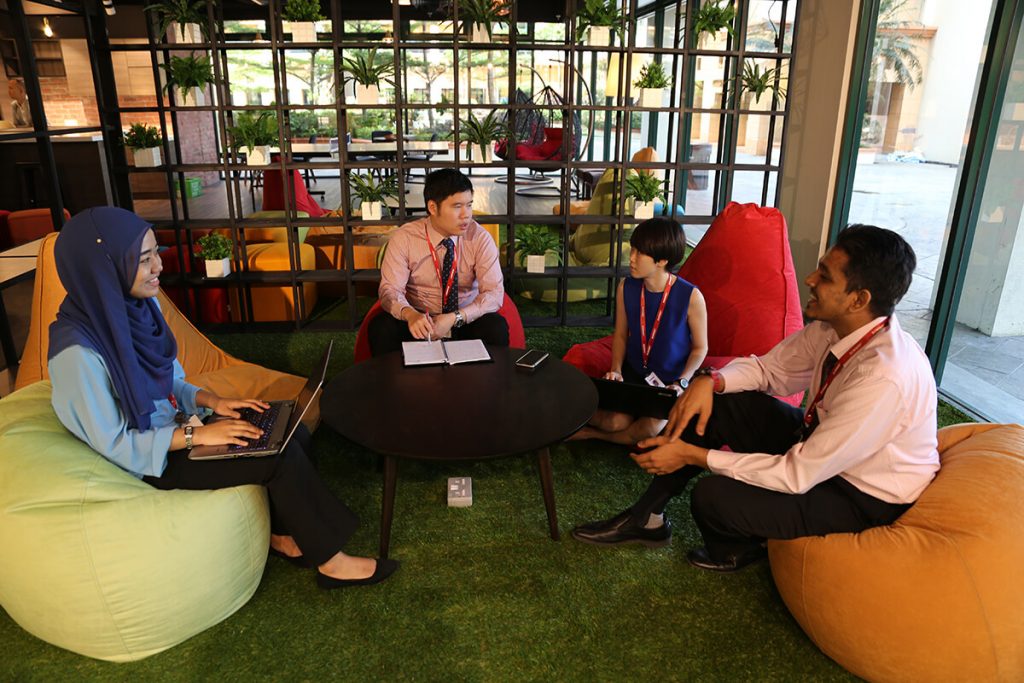
Sunway iLabs Makerspace promotes entrepreneurship among students who aim to lead the future with new innovations.
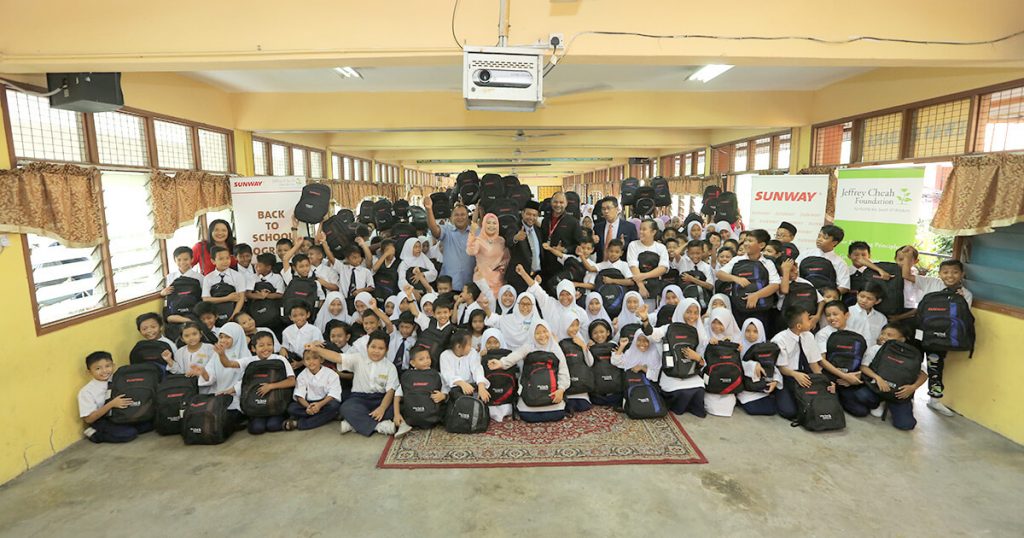
(Standing in the middle) SK Puchong Perdana principal Nor Azian Ashar (second from left), Seri Serdang Community Centre special officer of welfare Sulaiman Ibrahim (centre) and Sunway Group brand marketing and communications CSR and events assistant general manager Bernard Paul (second from right).
Soaping up the town
As a conglomerate that oversees many hotels, Sunway paves its way towards responsible processes, which are aligned with the 12th United Nation Sustainable Development Goal (UNSDG) by ensuring sustainable consumption and production patterns in its business strategies and practices.
The Sunway Resort Hotel’s Soapful project is one of the paths taken to help save the environment while helping children in need.
Kick-started in July, the Soapful event is an ongoing project by Sunway to help children’s homes financially by repurposing used hotel soap that would otherwise be dumped in landfills.
These bars of soap can be used by these homes or sold to the public as a means of generating income (only for selected homes).
Since its inception, some 100kg of leftover soap has been repurposed into new soap bars. The leftover soap bars come mainly from Sunway Resort Hotel, Sunway Pyramid Hotel and Sunway Lagoon Hotel. Collection of the soap bars started in July.
This project will include the other five Sunway hotels – Sunway Putra Hotel, Sunway Velocity Hotel, Sunway Hotel Georgetown, Sunway Hotel Seberang Jaya and The Banjaran Hotsprings Retreat – next year.
Earlier this month, Sunway presented 1,000 bars of repurposed soap to Pertubuhan Kebajikan Anak Yatim Darul Ehsan Malaysia to kick-start the home’s social enterprise project.
The main partners of the project are Ecolab, Kinder Soaps and Selangor Youth Community.
With help from these partners, the process of collecting used soap bars, repurposing them into new bars of soap, and teaching and guiding selected homes to repurpose used soap bars have been carried out without a hitch. All repurposed soap bars are processed according to stringent standard operating procedures that adhere to strict safety and environment standards.
At the end of the one-year project, the homes should be able to produce their own repurposed soaps for personal use and to be sold to the public.
Kelly Leong, Sunway Hotels and Resorts’ regional senior general manager, says the Soapful project was conceptualised to benefit the environment, society and economy in accordance with the hospitality group’s commitment to UNSDGs, which aim to drive sustainable progress in the world.
“First, the project intends to benefit the environment by removing soap waste from landfills. Second, it helps the selected home reduce costs as the repurposed soap bars are also meant for its residents’ personal use.
“Third, it helps children cultivate meaningful business skills that can help them break the cycle of poverty. Fourth, it is our hope that besides utilising the income for their daily needs, the children will use these life skills to start their own business and pursue social mobility or even start their own businesses that employ other youths in the future,” says Leong.
Blooming with life
Sunway strives to produce sustainable cities and communities. To do this, it aligns itself with the 11th United Nations Sustainable Development Goal (UNSDG) to create cities that are more inclusive, safe, resilient and sustainable.
Sunway City Kuala Lumpur has implemented a vast array of energy-saving and efficient measures to not only stand its ground as a smart city, but also a sustainable one for the 21st century.
Some examples of these initiatives are:
- A water treatment plant and rainwater harvesting tanks to conserve water
- More than 3,000 24-hour CCTV cameras to monitor the township
- Electric buses that run every five minutes on an exclusive, 5.4km-long elevated track
- A Canopy Walkway and Eco Walk (equipped with solar panels) that connect Sunway University, Sunway Pyramid, Sunway Lagoon, Sunway Medical Centre and more
There are also plans to implement intelligent traffic lights that only turn red when there are vehicles or pedestrians in the vicinity.
At a UBS conference in Singapore, Tan Sri Dr Jeffrey Cheah retells the history and successes of how Sunway City came back to life from its start in 1974.
“More than 25,000 trees have been transplanted and a complete ecosystem restored. The land was completely mined and washed out, but today, you can even find earthworms in the ground. There are now more than 150 species of flora and fauna within the township.
“We also have our own public transport system with electric buses that run on specially designed elevated bus lanes. Almost 50% of Sunway City is open space and 24% of the city is green space. Both figures are well above the regulated minimum.
“We have built certified green buildings and last year, we constructed and commissioned our own water treatment plant to purify water from two sunken mining lakes to meet potable water standards set by the Government. We initiated a whole range of energy-saving and efficiency measures within the city.
“We are not finished yet. We will be building a combined generation plant for Sunway City, which will use natural gas to generate electricity and hot and cool water to further reduce our carbon footprint. We also plan to integrate technology more deeply to establish Sunway City as a model ‘smart sustainable city’ of the 21st century.”
Sunway holds the preservation of nature, heritage and culture close to its business plans and values. Through this foresight on environmental conservation, Sunway City Ipoh was developed without destroying any of the natural landscape. The Banjaran Hot Springs Retreat, an eco-friendly wellness retreat set amid a pristine tropical jungle, is the highlight of the project. Endowed with an array of natural features, including 260-million-year-old Paleozoic limestone caves and a geothermal spring, it is truly a healing balm to the soul.
Sunway worked to conserve these precious natural features and willingly extended the development period of the 16-acre (6.4ha) resort from 15 months to three years. The property was integrated with the topography of the land and natural features were incorporated into the design.
The tree population was preserved and existing limestone caves were adapted for different functions such as meditation areas and wine cellars.
The Banjaran Hot Springs Retreat received the prestigious FIABCI Prix d’Excellence Award in 2012 for the resort category in recognition of the effort Sunway went through in the name of environmental conservation and sustainability.
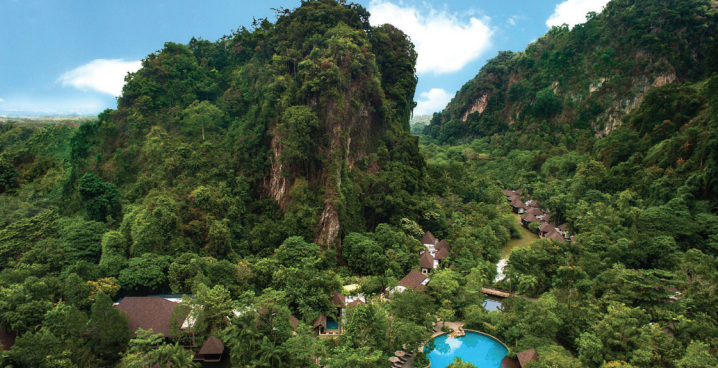
The Banjaran Hotsprings Retreat, Ipoh.
The article originally appeared in The Star, CSR Pullout











